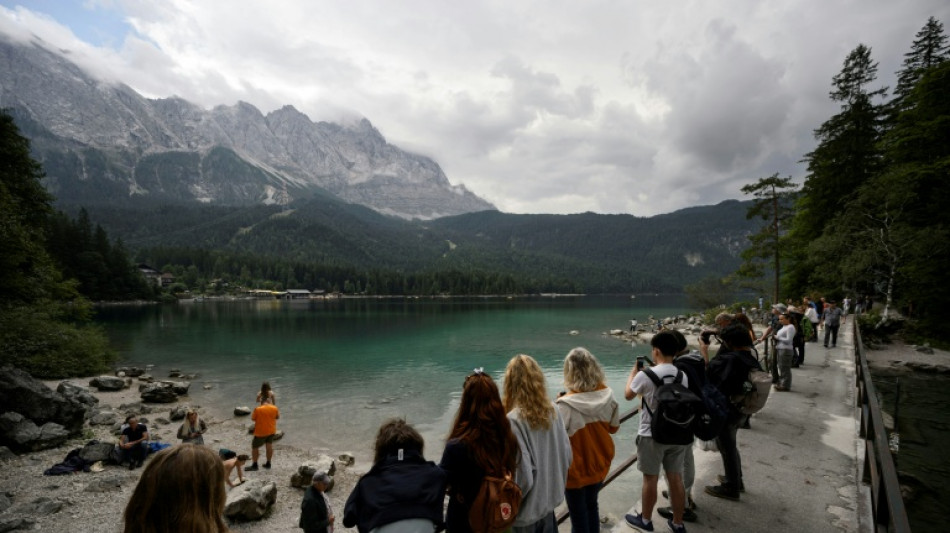

Summer brings overtourism fears for 'Bavarian Caribbean'
A picture-perfect Alpine mountain lake in Germany draws so many visitors every summer that the first thing they see is crowded busses, traffic jams and a packed-out carpark.
The crystalline waters and mountain vistas of Bavaria's Eibsee lake have become a hit on social media, fuelling fears it will be loved to death by overtourism.
Municipal official Christian Andrae says he is glad people appreciate the lake -- but also that the crowds now sometimes remind him of "mass events" like Bavaria's famed Oktoberfest.
The lake at the foot of Zugspitze, Germany's highest peak, has joined other destinations like Venice in re-evaluating the pros and cons of drawing throngs of visitors, albeit not yet on the same scale.
In the nearby town of Grainau this week, crowds were waiting for shuttle buses up to the lake, only to find them so packed they had to wait for the next one.
Bumper-to-bumper traffic crawled along the last few kilometres of the sole road up to the lake, which also leads to the equally jam-packed cable cars to the top of Zugspitze.
Once visitors get to the lake, they are rewarded with stretches of beach along the pine-fringed shore, dubbed the "Bavarian Caribbean" by the local tourist office.
"We didn't think there would be this many people, but it really is very beautiful," said 32-year-old French tourist Clement, as his partner, Marion, who is the same age, marvelled at the colour of the water.
"It's so clear, which isn't often the case with lakes," she said, before the couple set off with their baby to complete the 7.5-kilometre (4.7-mile) circuit around the lake.
- 'Certain amount of strain' -
Grainau, a town of 3,600 inhabitants, hosts about 620,000 overnight stays per year, plus huge numbers of daytime visitors, said Andrae, who is deputy mayor.
He said he despairs at those visitors who "ignore signs on the road to the Eibsee telling them that the car parks are all full", only to then "have to turn back and further worsen the traffic".
While some have suggested installing entry and exit barriers on the road leading to the lake, Andrae said such a system would be illegal and would anyway not be an effective solution.
"Visitors have to apply a certain level of responsibility and consideration," he said.
But for now, the town is prepared to live with the crowds and "the certain amount of strain" they put on the infrastructure.
For example, to keep the lake looking pristine, the municipality has "almost daily" collections from the numerous rubbish bins around the lake, Andrae said.
Two other visitors, Max, 27, and Yan, 26, spent an hour-and-a-half on the road on the way to the lake, but said it was worth making their way through the traffic jams.
"I really wanted to come back here," said Max -- for both it was their second visit.
"It's a wonderful place to spend the day," said Yan, who found that while there was "a huge number of people", it was still just about possible to find some "more peaceful corners".
C.Ricci--GdR



